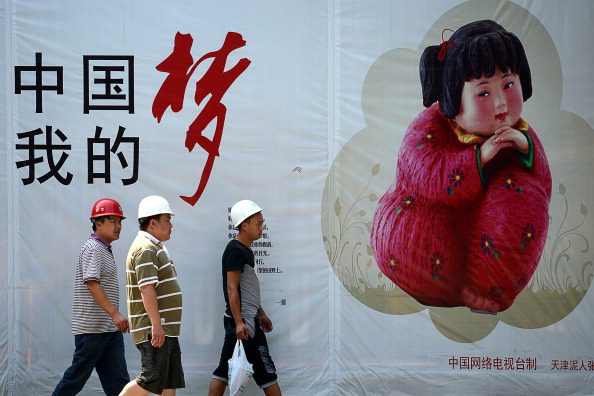
December 4, 2014, by Tony Hong
Dream On
By Kim Willcocks
Senior Tutor for Reading and Writing, Centre for English Language Education, University of Nottingham Ningbo
Xi Jinping’s contribution to the arsenal of warm and fuzzy CCP catchphrases is “the Chinese dream” and recently I’ve read about it more and seen it plastered on the billboards around Ningbo more. Seems that someone’s trying to get it taken seriously.
What is this “Chinese dream”? First of all, it’s not officially clear what this dream is dreaming of, but it sounds good, leaves a nice warm glow, and can safely adorn billions of billboards and provide the theme for high school public speaking competitions. The other thing, and the CCP must know this of course, is that it alludes to and is derivative of “the American dream”. But the differences are very revealing.
The original American dream has meant slightly different things to different folk at different times – and that’s inevitable with such a vague and dreamy term. But the kernel of it is that anyone can achieve the good life for themselves in America because the chance is there for everyone to take. Oh, yes, and anyone can become President! It’s an aspiration for the individual, and it’s also a message, or a slogan if you will, that was never foisted from above but was popularized by a historian and picked up and used by we the people.
The Chinese dream, in contrast, came from a speech by the Chinese President and is plastered all over the official media. But what dream is it that the president wants his people to have? What does Xi want you to yearn for, you huddled masses? Well, sadly it’s nothing along the lines of Xi Jinping dreaming that he’s a butterfly and wondering whether he is just a butterfly dreaming that he’s the boss of the CCP. And since Prez Xi hasn’t deigned to spell out what this dream is all about, then let me, in the spirit of Herr Freud, take a stab at interpreting it. (“Dreams, in Freud’s view, are all forms of “wish fulfillment” — attempts by the unconscious to resolve a conflict of some sort, whether something recent or something from the recesses of the past.”)
It’s a very wordly dream and my take on it is that the Chinese dream is a geo-political dream of a return to a strong China that sits at the centre of the world. It is a dream of a China that will never be bullied again, and so “the century of humiliation” can be finally forgotten because China will be strong, mighty, and feared. (Just like the US!) That’s why China has instituted an “Air Defense Identification Zone” that, it knows, has managed to anger its neighbours because it covers territory they consider to be their own. And the Chinese dream is why China is building artificial islands in disputed territory in the South China Sea. As the good old East-West cliché goes, the Chinese dream is a collective dream vs the individualistic American one. China united will be powerful, and any subversive desires that undermine this collective dream will be dealt with harshly. That’s why there’s a crackdown against almost all dissidents these days, and heavy handed attempts to limit the expression of Muslim (and other non-Han) identities.
Someone once defined the difference between authoritarian and totalitarian states as being that the authoritarians just want to stop you from doing certain things whereas the totalitarians want to tell you what to do. Well, seems like the Chinese dream is a totalitarian one in that respect. President Xi is a strong man and he can get inside your head! However, that’s not to say that it’s not a real and genuinely popular dream for a lot of Chinese people. There does seem to me to be a real hunger for military and geo-political power, because it’s equated with respect. When the Japanese “nationalised” the Senkaku/Diaoyu islands a couple of years ago many of my students (mostly but not only the males) thought it was outrageous but told me that they were sure the Chinese government wouldn’t take any military action “like you British did with the Falklands” because they were too cautious. One even told me that “China needs to man up!” Depressing stuff, but not surprising. I remember the cheers that rocked my university dormitory in England when the bombs started falling in the Iraq war. To hear those cheers you’d think it was the UK not the US dropping them. To hear those cheers, you’d think it was intrinsically a good thing to drop bombs. Humans need to grow up, not man up, and you can dream on if you think that’s going to happen anytime soon.
No comments yet, fill out a comment to be the first

Leave a Reply